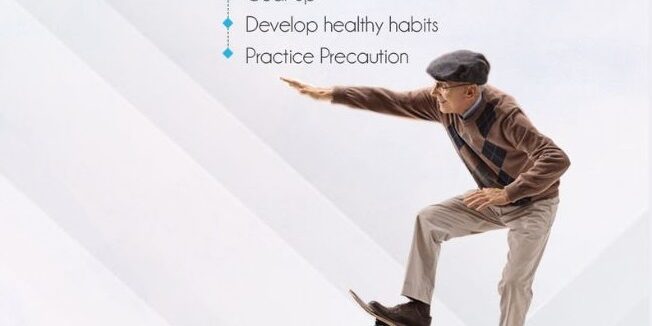We see many senior citizens complaining about the pain in their bones. While most people blame their age for the increasing level of pain and poor mobility, some people believe it’s their sedentary lifestyle that contributes to excess joint pain. Regardless of the cause, you should see an orthopedic doctor in Thane & Mumbai. But, do you know your diet, lifestyle, exercise routine, and other daily practices have a significant impact on your bone health? You don’t even need to see a doctor if your body gets sufficient vitamins and nutrients from your diet.
Factors that Affect Bone Health
Your body makes new bone mass when you are young. By the age of 30, you achieve peak bone mass. As you age, your body loses the ability to generate new bone mass. It also loses the existing mass rapidly, which might eventually lead to osteoporosis — a medical condition that makes your bone extremely brittle, causing severe knee pain.
Your risk of developing osteoporosis depends largely on the bone mass you have attained after turning 30. The more bone mass in your body, the less likely you are to suffer from osteoporosis. Here are a few essential factors that affect your bone health.
- Calcium in Your Diet: Your diet must have adequate calcium, as calcium deficiency is one of the common causes of bone loss. The recommended calcium intake changes for people as they age. For up to 50 years, you are required to add at least 1,000 mg of calcium to your diet. The number increases to 1,200 mg for people above 50.
- Tobacco and Alcohol: Tobacco and alcohol can weaken your bones, increasing your risk of osteoporosis. Regular consumption of these hazardous items can wreak havoc on your bone health.
- Your Size and Age: It may seem irrelevant, but your health and fitness do play a role in your bone health. People with a small body frame or those who are extremely thin tend to have less bone mass than healthy people. As mentioned before, your bones get brittle gradually. Once you turn 30 years, you start losing bone mass.
- Vitamin K and Vitamin D Deficiency: Vitamin D and K are essential for your bone health. You should get sunlight for vitamin D. Fish, fortified milk, and egg yolks are some of the best sources of vitamin D. Meat, cereal, eggs, and green leafy vegetables are excellent sources of vitamin K.
- Hormonal Imbalance: Women are more likely to experience bone loss by the time their menstrual cycle stops. A drop in estrogen levels affects your bone density, causing significant bone loss. An increased level of thyroid hormones can also cause osteoporosis. In men, a low level of testosterone is the cause of bone loss.
- Eating Disorders: Not eating enough or being extremely underweight increase your risk of osteoporosis. Besides that, the conditions affecting your body’s ability to absorb calcium can also lead to low bone density.
Consult the best bone doctor in Thane to establish a perfect diet and exercise routine for your bone health.







